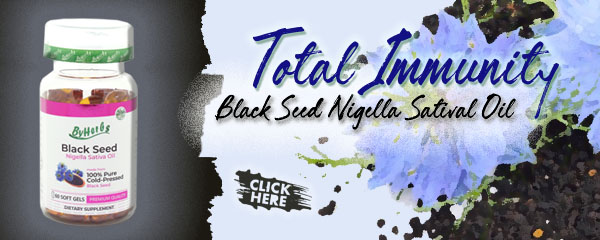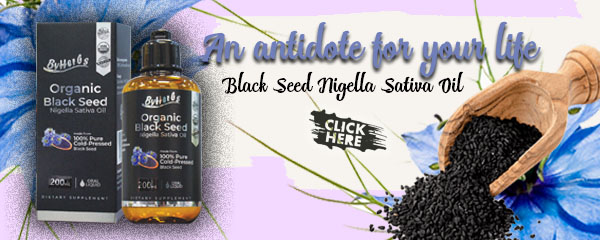Nigella sativa, commonly known as black seed, is a flowering plant native to South Asia
Although the black seed is also sometimes called black cumin (or black cumin seed), it shouldn’t be confused with regular cumin (Cuminum cyminum) that belongs to an entirely different plant family.
Black seed has been traditionally used for various health conditions, but most of its purported benefits lack scientific evidence and rely only on findings from cell culture or lab animals.
Additionally, black seed supplements have not been approved by the FDA for medical use. In general, dietary supplements lack solid clinical research. Regulations set manufacturing standards for supplements but don’t guarantee that they’re safe or effective. Speak with your doctor before supplementing.

Black Seed Oil Health Benefits
- Reducing high blood pressure: Taking black cumin seed extract for two months has been shown to reduce high blood pressure in people whose blood pressure is mildly elevated.
- Reducing high cholesterol: Taking black seed oil has been shown to reduce high cholesterol. It’s high in healthy fatty acids that can help you maintain healthier cholesterol levels. Examples of these fatty acids include linoleic acids and oleic acid. The levels of the oils can vary depending on where the black seeds are grown. People may also see results when consuming the crushed seeds.
- Improving rheumatoid arthritis symptoms: Taking oral black seed oil may help to reduce inflammatory rheumatoid arthritis symptoms.
- Decreasing asthma symptoms: The anti-inflammatory effects of black seed oil may extend to improving asthma symptoms. Its effect in reducing inflammation in the airways may also help with bronchitis symptoms.
- Reducing stomach upset: Eating black seeds or taking black seed oil is associated with relieving stomach pain and cramps. The oil can help to reduce gas, stomach bloating, and the incidence of ulcers as well.
Black Seed Oil Beauty Benefits
The black seed oil has several applications and benefits for problematic skin conditions. The oil is found in many health food stores and pharmacies. Examples of applications for beauty and skin include:
- Acne: According to the Journal of Dermatology & Dermatologic Surgery applying a lotion prepared with 10 percent black seed oil significantly reduced the incidence of acne after two months. Those who participated in the study reported 67 percent satisfaction.
- Hydrating hair: Black seed oil can be applied to human hair to soften it and promote shine.
- Psoriasis: Applying black seed oil has been shown to reduce the incidence of psoriasis plaques.
- Softening skin: Black seed oil has been added to oils and moisturizers to improve skin moisture and hydration.
- Wound healing: The application of black seed oil has been shown to reduce inflammation and the presence of bacteria to aid in wound healing. While it doesn’t seem to be helpful in growing new collagen fibers, it does stimulate other growth factors to help the body create new, healthy skin.
Remember, black seed oil shouldn’t replace prescription treatments that a doctor may give you. But it does have some beauty benefits that can work in addition to these treatments to enhance your skin.


